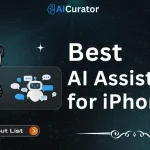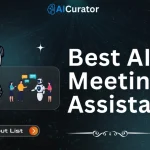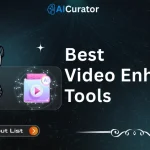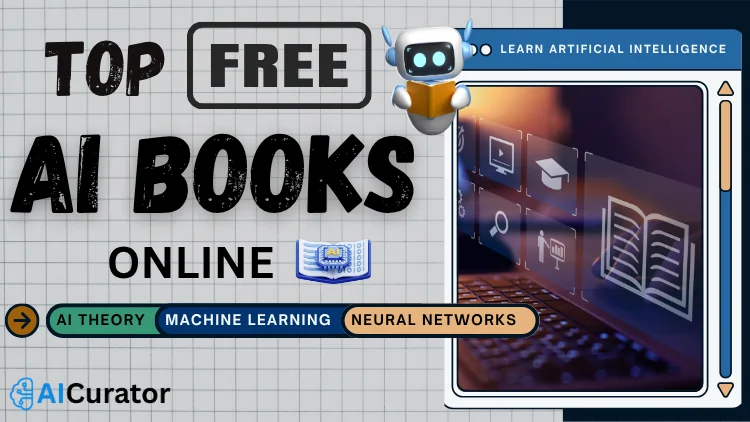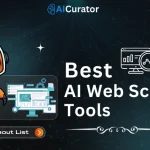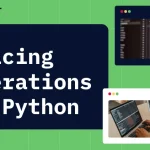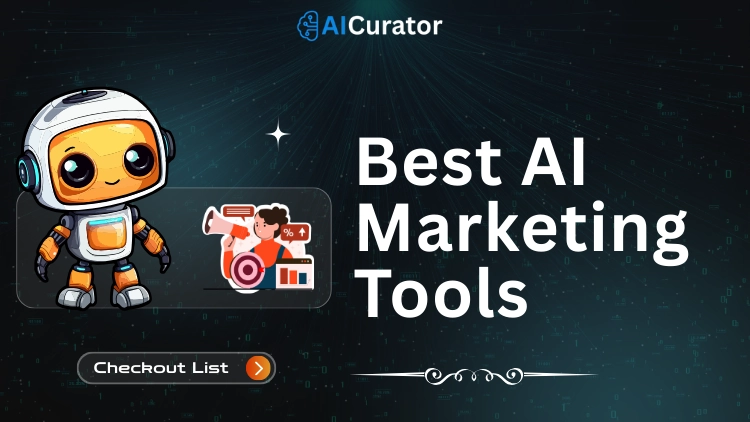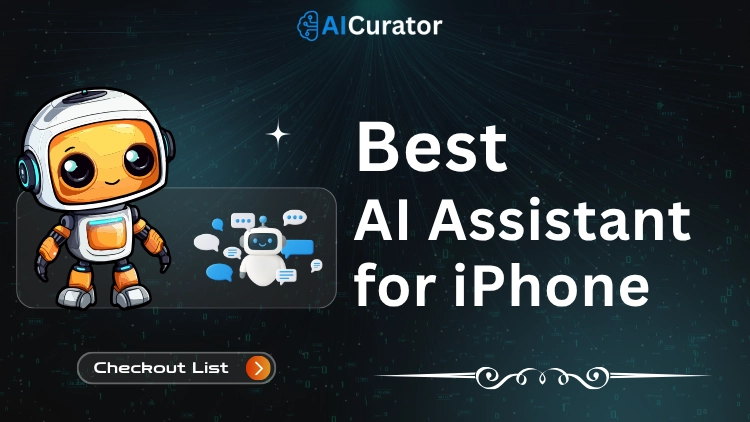Free AI books offer accessible knowledge for learners at all levels, from beginners to advanced professionals. These resources cover core areas like artificial intelligence theory, machine learning, neural networks, reinforcement learning, and ethics.
They cater to diverse learning needs—whether theoretical understanding, hands-on coding, or interview preparation.
With options ranging from illustrated guides to university-level textbooks, these books are valuable for students, developers, researchers, and hobbyists alike, making high-quality AI education available without financial barriers.
Why Read Free AI Books Online?
Learning artificial intelligence shouldn't cost a fortune. Free AI books online pack the same insights as expensive courses, giving you access to proven techniques and real-world applications without the hefty price tag.
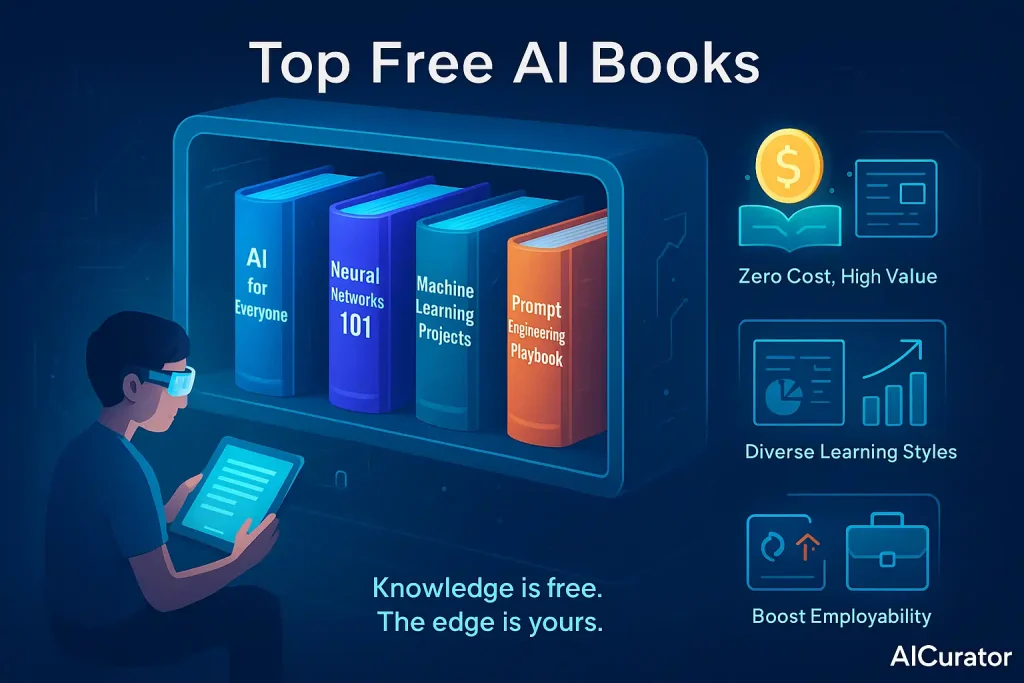
These digital resources pack decades of research, practical frameworks, and real-world case studies into formats that fit any schedule.
Here's why it makes sense:
Top Free AI Books: Quick Reference Guide
| AI Book Title | Author(s) | Pages | Target Audience | Key Focus | Unique Perks |
|---|---|---|---|---|---|
| The Beginner’s Guide to Artificial Intelligence AI | Frank Dartey Amankonah | 58 | Beginners, non-techies | AI basics, applications, ethics | Simple language, real-world examples |
| Introduction to Artificial Intelligence | Marc Toussaint | 248 | Students, early professionals | Theory, decision-making, probability | University-level, exercises included |
| Understanding Artificial Intelligence | Nicolas Sabouret | ~200 | General readers, teens | How AI works, limitations | Illustrated, jargon-free, fun style |
| Artificial Intelligence: Foundations of Computational Agents | David Poole & Alan Mackworth | 600+ | Undergrads, grads, engineers | Agents, logic, ML, multi-agent systems | Deep theory & practical, open access |
| Make Your Own Neural Network | Tariq Rashid | 222 | Beginners, coders | Neural networks, Python | Build from scratch, Raspberry Pi projects |
| The Hundred-Page Machine Learning Book | Andriy Burkov | 100 | Busy pros, interviewees | ML algorithms, practical tips | Concise, endorsed by Google experts |
| Reinforcement Learning: An Introduction | Sutton & Barto | 322 | ML/AI students, researchers | RL algorithms, MDPs | Gold standard for RL, free PDF |
1. The Beginner’s Guide to Artificial Intelligence AI
Why It Stands Out
This book is a lifesaver for anyone who finds AI jargon overwhelming. It strips away complexity, focusing on practical use cases and the social impact of AI.
The author also highlights the need for responsible AI adoption, making it a great starting point for anyone worried about the future of automation and jobs.
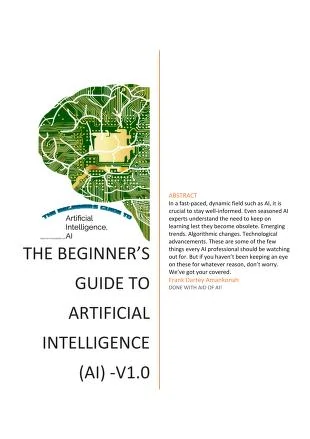
- Author: Frank Dartey Amankonah
- Length: 58 Pages
Who Should Read This?
What You’ll Learn
Learning Outcomes
2. Introduction to Artificial Intelligence by Marc Toussaint
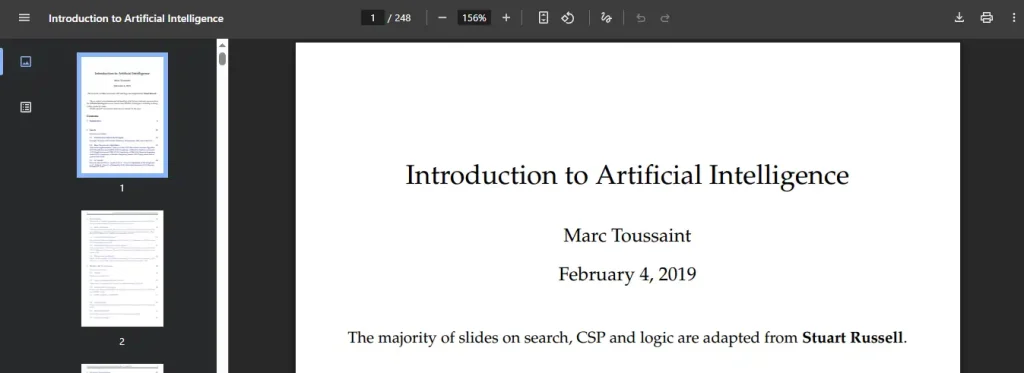
- Author: Marc Toussaint
- Length: 248 Pages
Why It Stands Out
This book is a goldmine for those who want to dig deeper than the basics. It’s structured like a university course, making it perfect for self-learners who crave rigour.
The included exercises help cement understanding, and the book’s focus on both theory and application is rare in free resources.
Who Should Read This?
What You’ll Learn
Learning Outcomes
3. Understanding Artificial Intelligence
Why It Stands Out
This book is a breath of fresh air in a field full of intimidating textbooks. It’s packed with illustrations and real-world analogies, making AI concepts accessible to all ages.
Sabouret’s narrative style is engaging, and the book is perfect for anyone who wants to “get” AI without slogging through equations.
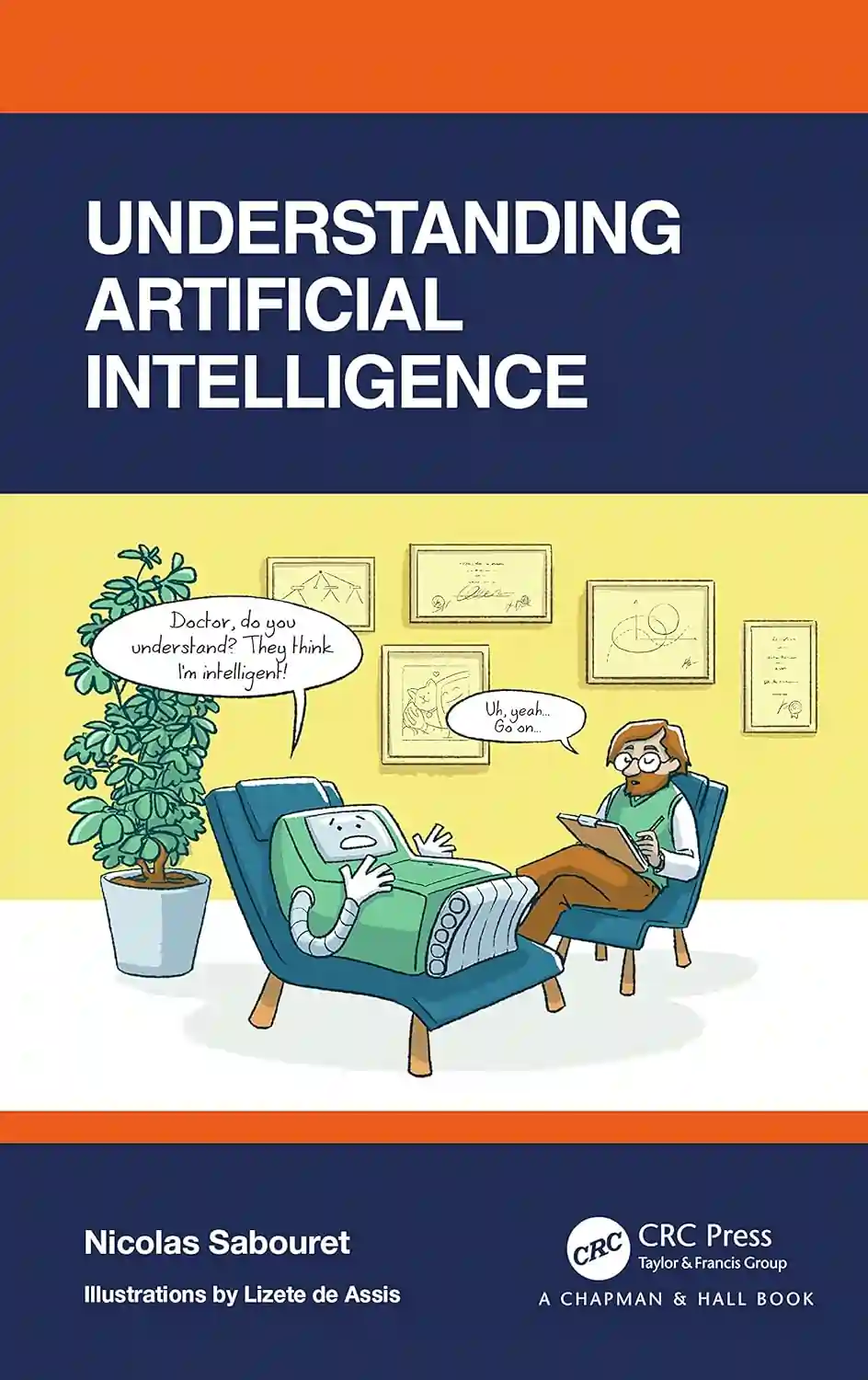
- Author: Nicolas Sabouret
- Length: ~200 Pages
Who Should Read This?
What You’ll Learn
Learning Outcomes
4. Artificial Intelligence: Foundations of Computational Agents
Why It Stands Out
This is the definitive free AI textbook for serious learners. It’s used in top universities and covers everything from foundational theory to practical engineering.
The book is updated regularly, open access, and includes exercises and references for further study. If you want to become an AI engineer or researcher, start here.
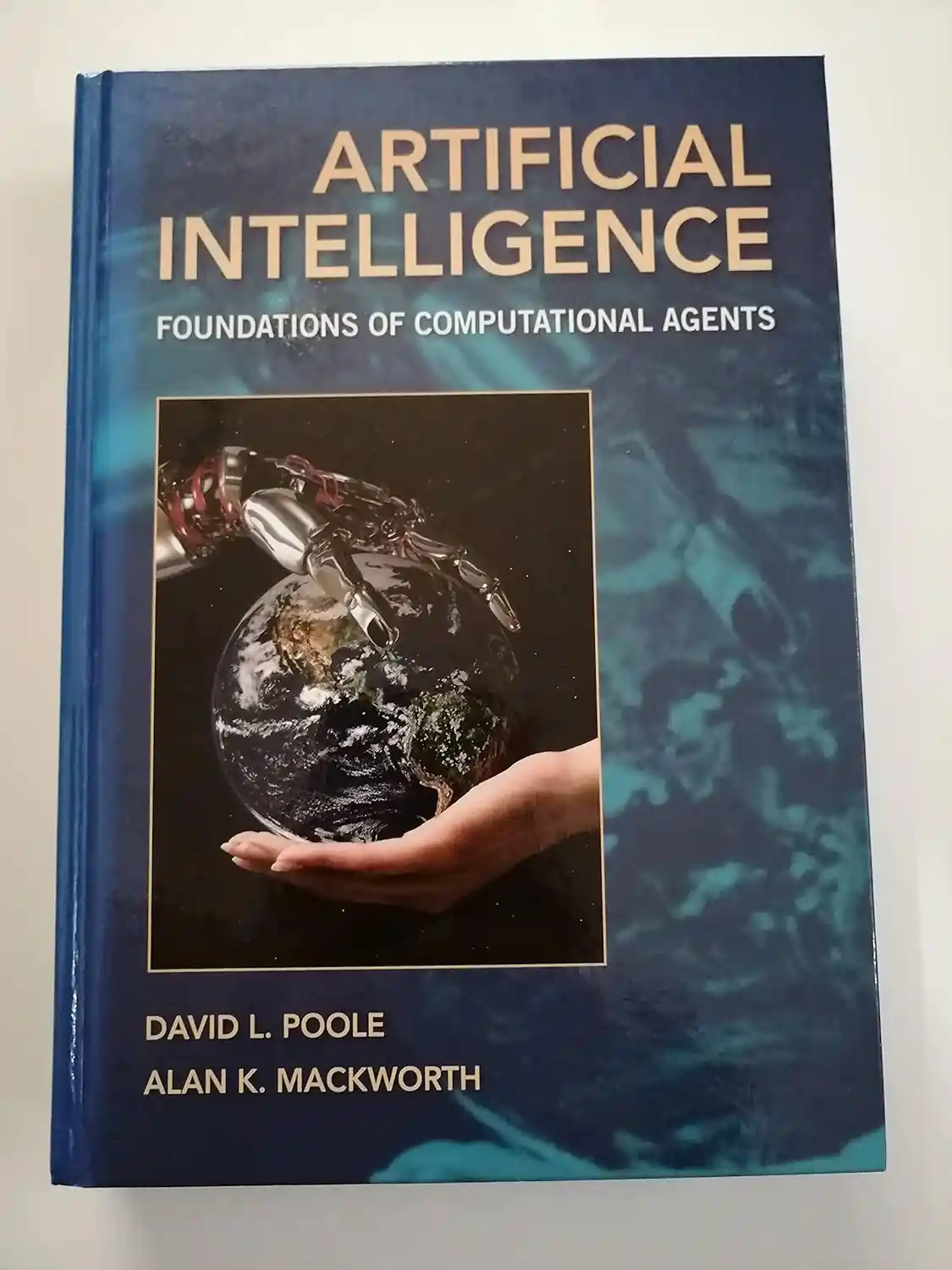
- Authors: David Poole & Alan Mackworth
- Length: 600+ Pages
Who Should Read This?
What You’ll Learn
Learning Outcomes
5. Make Your Own Neural Network
Why It Stands Out
This book is hands-on and beginner-friendly, guiding you from the core ideas to building a working neural network in Python. Rashid’s approach is practical: you’ll actually code and see results, not just read theory.
It’s also one of the few books that shows how to run neural networks on a Raspberry Pi—perfect for DIY projects.
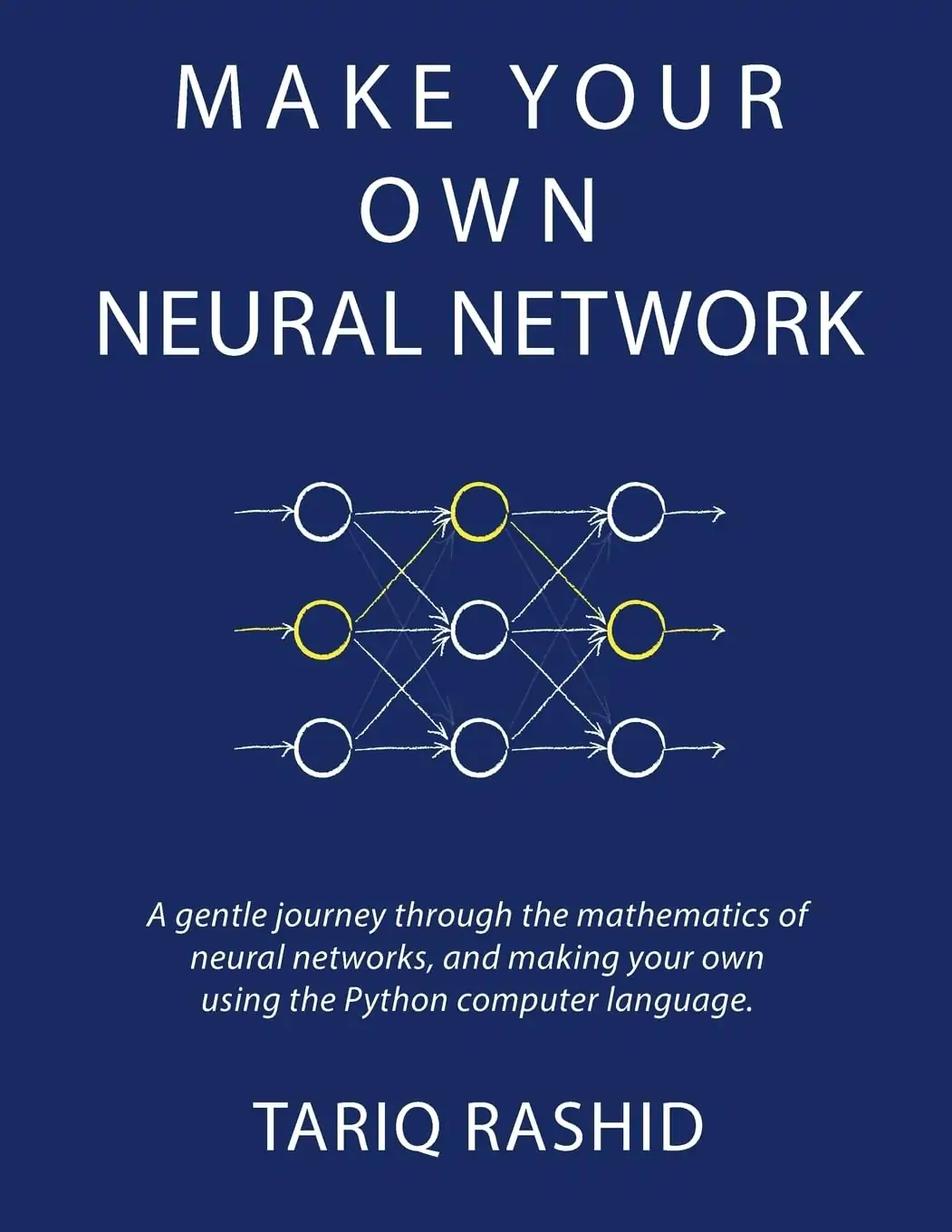
- Author: Tariq Rashid
- Length: 222 Pages
Who Should Read This?
What You’ll Learn
Learning Outcomes
6. The Hundred-Page Machine Learning Book
Why It Stands Out
Burkov’s book is legendary for its clarity and brevity. It’s been translated into 11 languages and is used in thousands of university courses. Endorsed by Google’s Peter Norvig, it’s ideal for those who want to get up to speed—fast.
The book is packed with practical advice and “a-ha” moments, making it a favourite for interview prep and on-the-job reference.
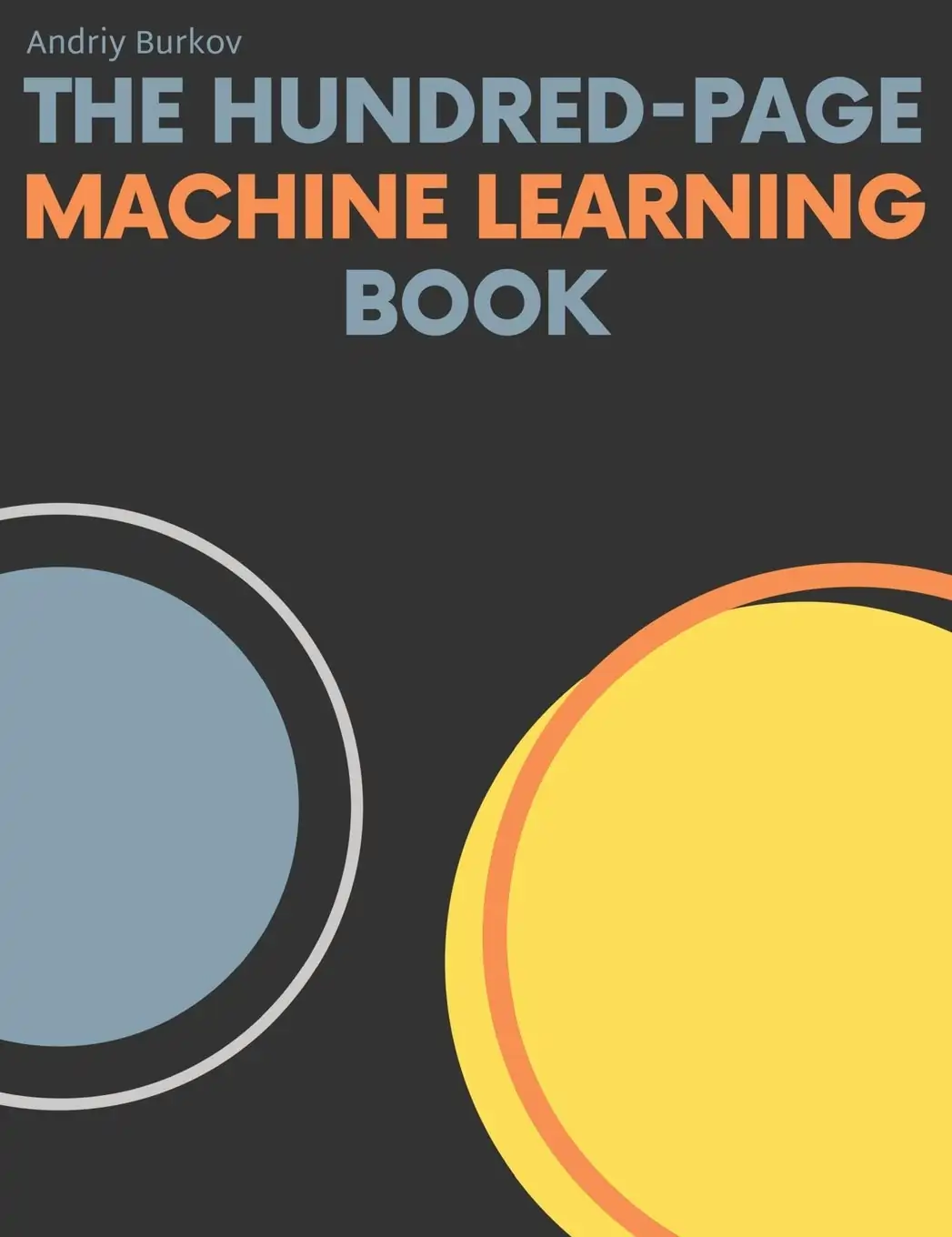
- Author: Andriy Burkov
- Length: 100 Pages
Who Should Read This?
What You’ll Learn
Learning Outcomes
7. Reinforcement Learning: An Introduction
Why It Stands Out
This is the “bible” of reinforcement learning, written by two pioneers in the field. The book is available for free as a PDF and is the go-to resource for anyone serious about RL.
It’s both rigorous and accessible, with clear explanations and practical examples. If you want to build AI agents that learn from experience, this is your starting point.
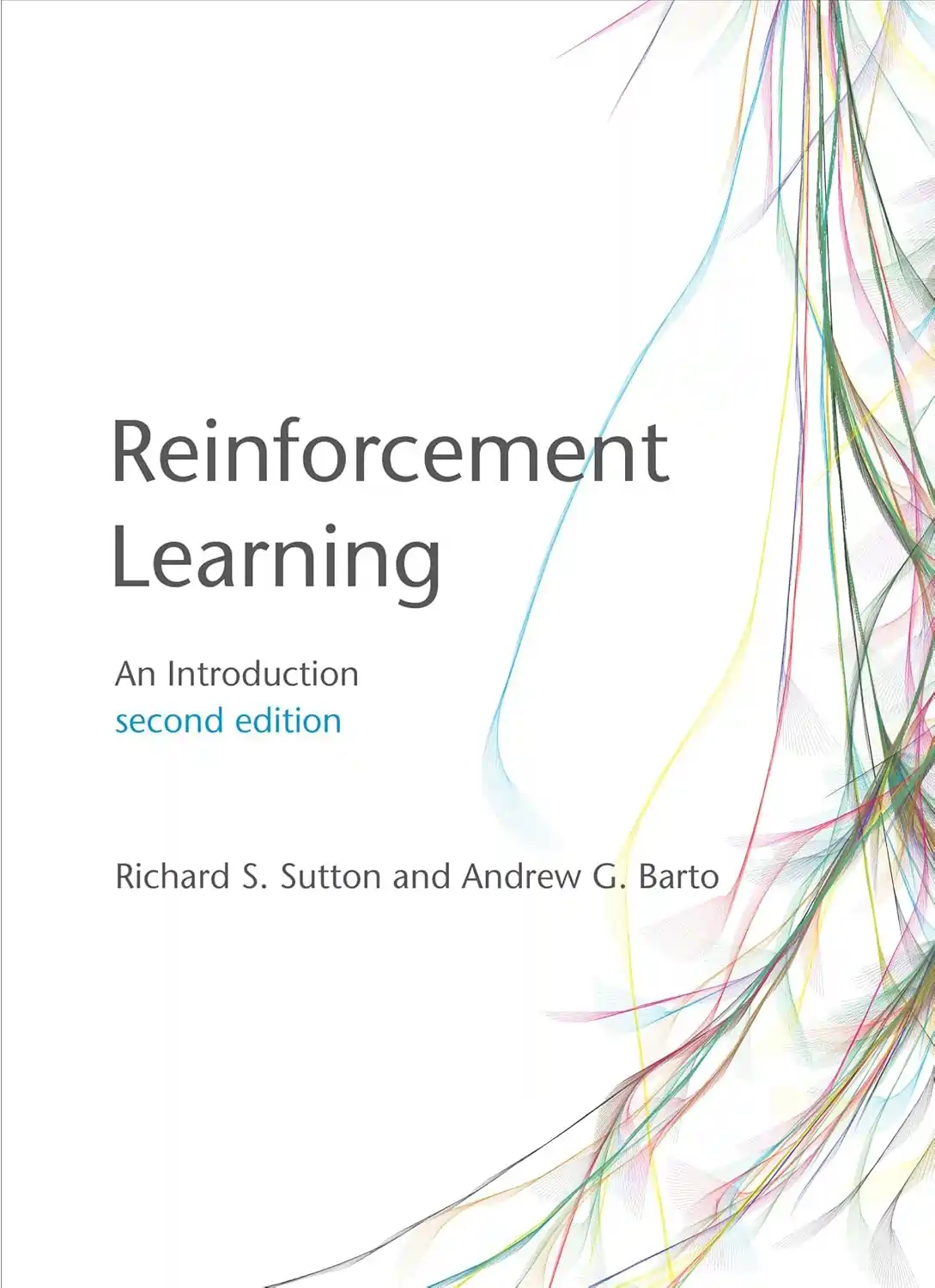
- Authors: Richard S. Sutton & Andrew G. Barto
- Length: 322 Pages
Who Should Read This?
What You’ll Learn
Learning Outcomes
Bonus Picks: Honorable Mentions
Conclusion
The collection spans a wide spectrum of AI topics, supporting varied goals like foundational learning, practical coding, and academic exploration. Readers can choose based on their skill level, time constraints, or focus area—whether it's reinforcement learning, neural networks, or machine learning algorithms.

With added perks like exercises, real-world examples, and open-access formats, these resources make it easier to understand and apply AI concepts. Selecting the right book ensures efficient learning tailored to your career or educational path.



